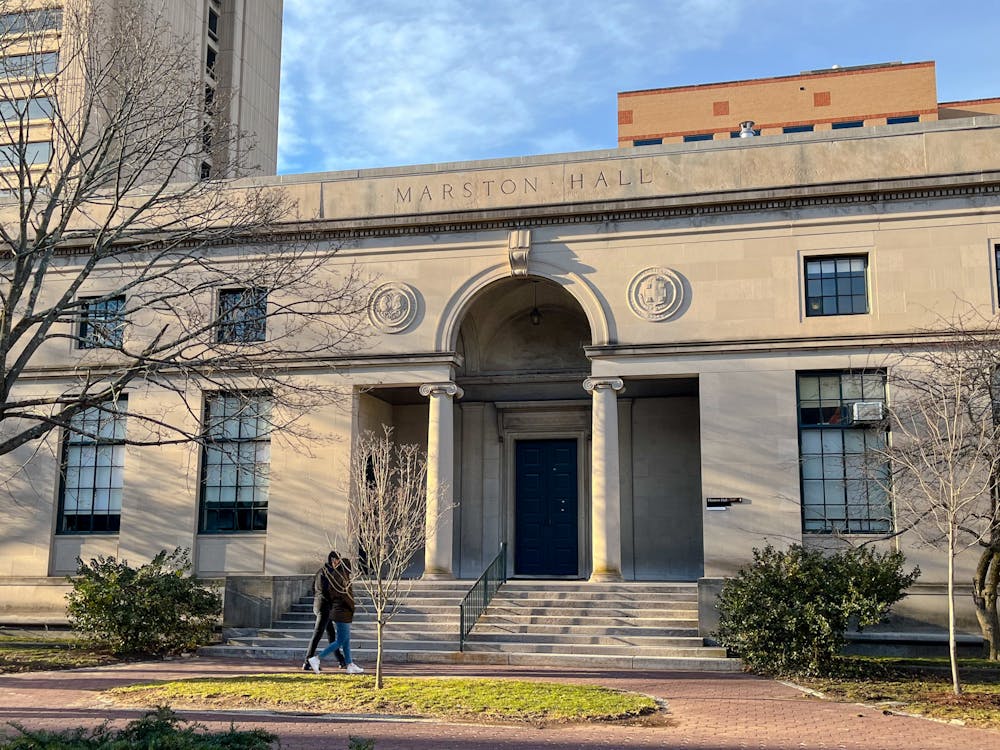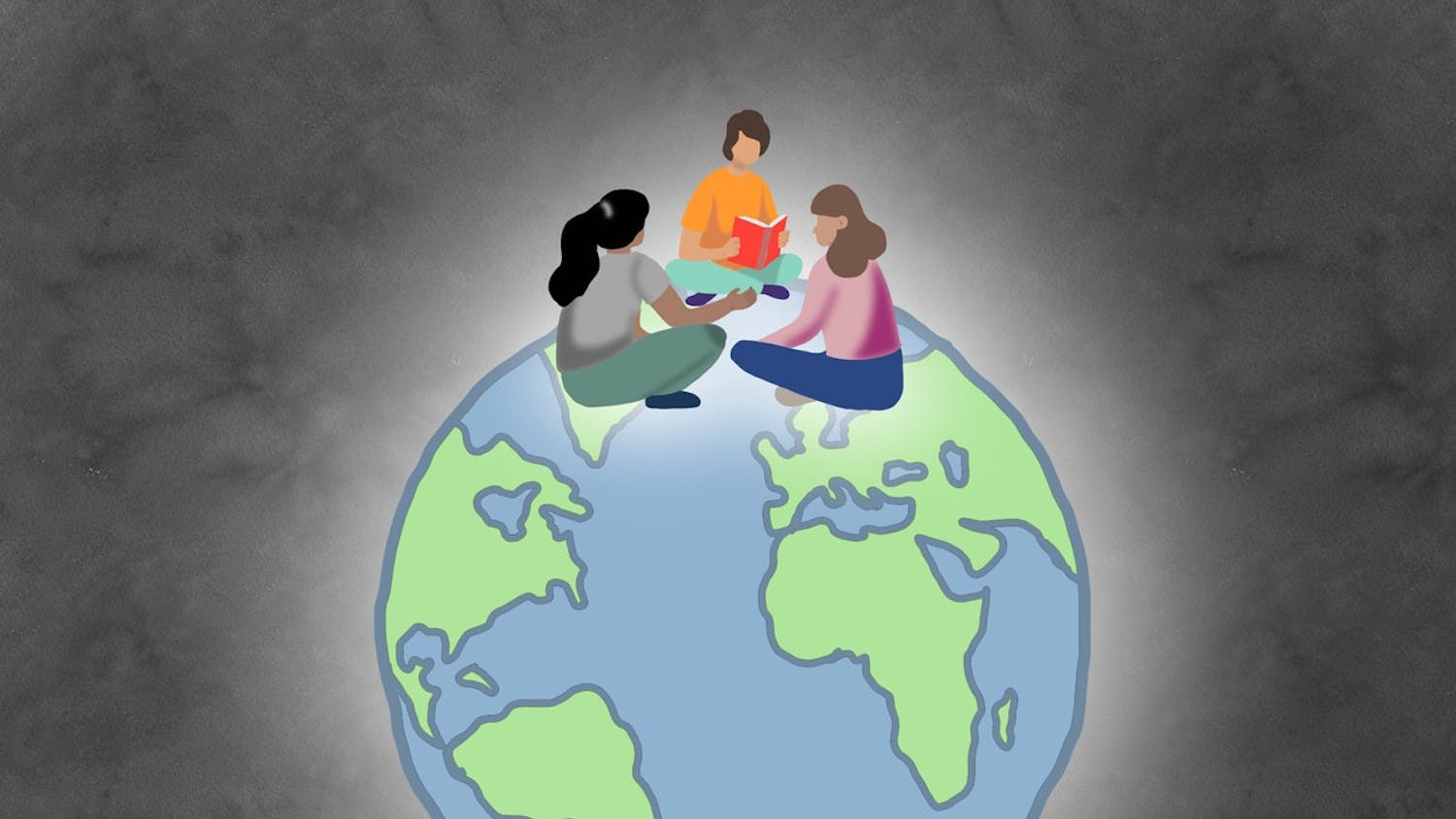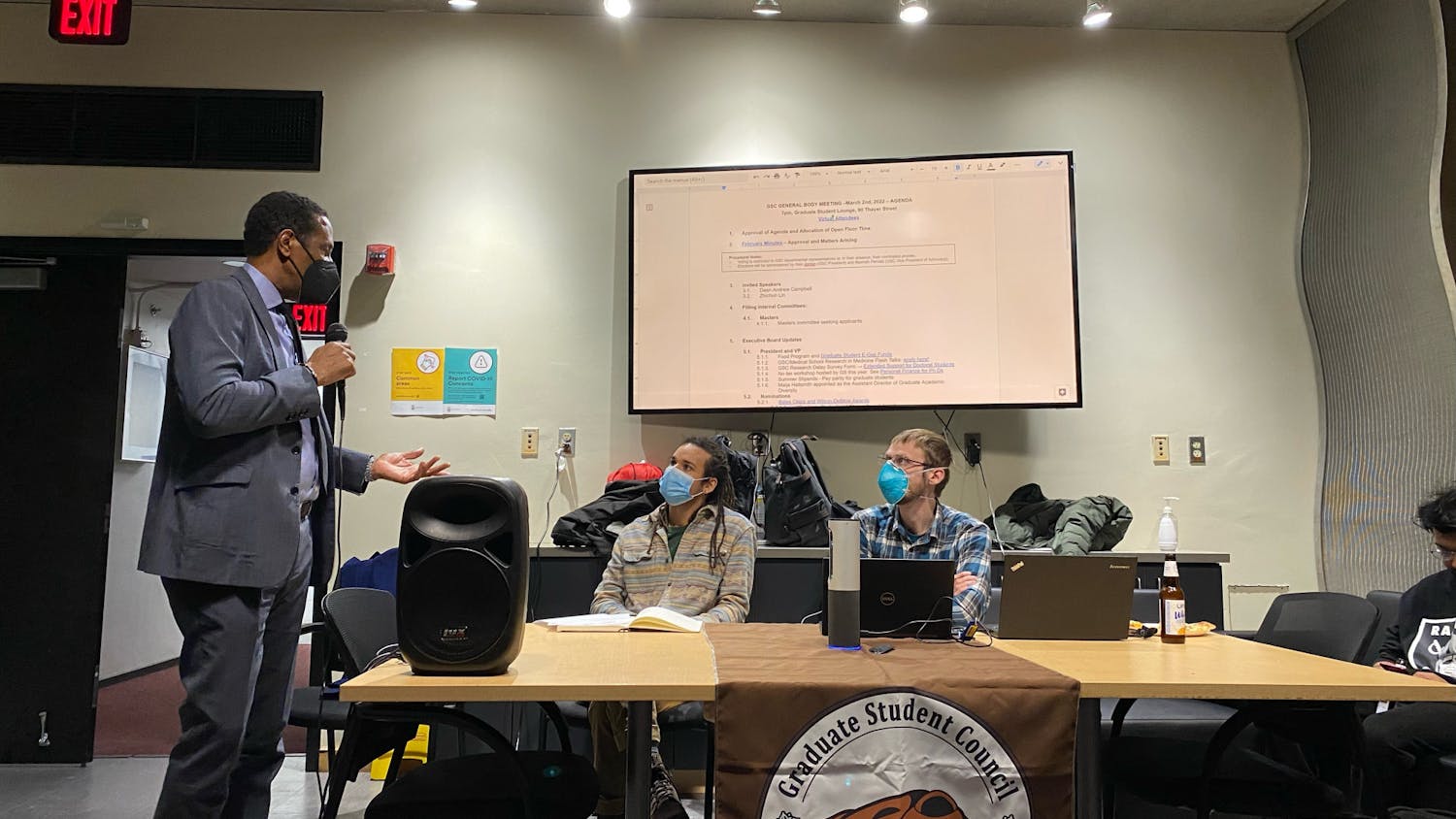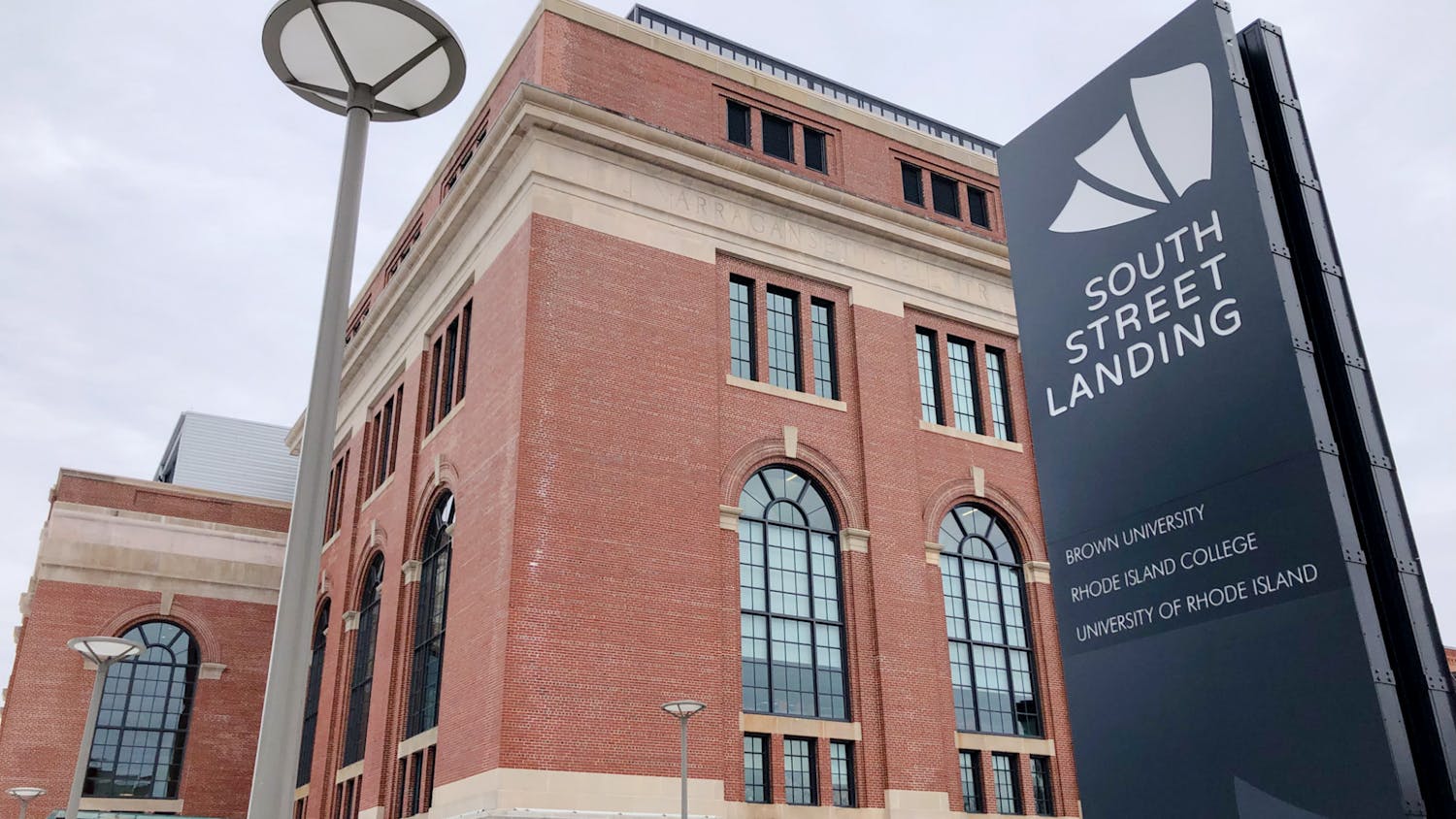In April 2020, Tara Wheelwright GS received a Fulbright Dissertation Fellowship. Wheelwright, who is working toward her PhD in Slavic Studies, planned on traveling to Russia in the same year to complete archival research, but she was unable to do so because of the COVID-19 pandemic.
More than a year later in October 2021, Wheelwright arrived in Russia with the intention of completing her research and staying in the country for two years. Wheelwright’s in-country work began with a Fulbright orientation day Feb. 23, 2022, the day before Russian forces launched a full-scale attack on Ukraine.
Within days, Wheelwright was forced to return to the United States despite initially being told she would be able to remain in Russia.
For graduate students in the Slavic Studies department like Wheelwright, the Russia-Ukraine war is a threat to their ability to complete their dissertations and find future employment, according to Professor of Slavic Studies Masako Fidler.
“If one needs to do fieldwork, archival work or to obtain even secondary literature that is available only in Russia, it has become impossible for them to do (so),” Fidler wrote in an email to The Herald. “Their dissertation research has been already impacted by COVID to begin with.”
Alexander Dumanis GS, who studies the shifting family structures in pre-revolutionary Russian literature, has been facing similar issues to Wheelwright. Dumanis was supposed to travel to Russia in 2020, but his plans were similarly interrupted by the pandemic.
“I’ve been meaning to go to Russia for the past three years to do research,” Dumanis said.
It seemed as if he was in the clear to travel to Russia this year but, “alas, war,” Dumanis said. “The entire country is cut off, … and it seems to be a pretty precarious situation there for foreign nationals. … It does not seem realistic in the near future to be able to” travel to Russia.
Dumanis was able to postpone his fellowship year, which is typically the fifth year of a graduate student’s studies, when the COVID-19 pandemic first hit. When Dumanis tried to postpone his research again in light of Russia’s invasion, he found that “bureaucratically, it’s not possible.”
Samuel Driver GS is also pursuing a PhD in Slavic Studies and received a Fulbright Dissertation Fellowship in fall 2021. Driver has faced similar issues attempting to travel abroad.
“Fieldwork is just non-existent unless you can find an archive in a different country that is not Ukraine, Belarus or Russia. … For me, there are zero chances,” Driver said. “The possibility of any non-Russian — or even a Russian — accessing state archives in Russia … that just won’t happen.”
In the early days of the conflict, Driver had hoped that things “would have cooled down enough” by August, maybe December. He no longer thinks this is possible, “even if the war ended today and everyone suddenly became more friendly with each other.”.
Driver still plans to complete his dissertation by December 2023, “for better or for worse,” but he worries about the repercussions this conflict will have on funding allocated for Slavic Studies.
“There’s not enough funding as it is for people within the Slavic fields. … The possibility of losing (fellowships) is pretty dire,” Driver said. “It’s a pretty incredible amount of stress. … It’s completely unknown on my end what’s going to happen” with Fulbright.
Wheelwright expressed a similar sense of uncertainty. “With the pandemic, there was an issue where people got sent home and their (fellowships) were just terminated,” Wheelwright said.
“We’re really trying to work with the federal funding agency and trying to determine what the other options are” for these students, said Thomas Lewis, associate dean of academic affairs and co-deputy dean in the Graduate School. “A number of students who are at the research phase of their dissertations are eligible for the COVID appointment extensions that provide them some additional time.”
Whether these students are able to conduct research at other sites depends on whether they are able to adjust their specific dissertation projects to fit the resources of another country, Lewis added.
While the humanities “have always faced funding problems,” Dumanis, who has family in Ukraine, worries more about the rise of “Russophobic backlash” in the West as a result of this conflict.
“You would think that in times of greater tension with Russia, there would be more interest. But I’m worried that this conflict will turn people off from all the incredible things that Russian culture has produced,” Duamnis said. “It’s the risk of this cultural myopia.”
“I have a feeling that we’ll have to be defending our degrees to a certain extent,” Dumanis added.
Driver has similar feelings about the current state of academia. “Since 2014, programs have just declined. It’s the state of most of academia right now where there’s no jobs. There’s no tenure track jobs,” Driver said. “Academic routes are very difficult as it is, and it’s just unknown whether that’s going to be harder or not.”
Driver emphasized the need to continue having open dialogues both inside and outside the University, especially as “being able to express what you want to express has become more and more difficult” in Russia.
“One of the things that the war reminds us of is the ongoing importance of deep knowledge about other parts of the world,” Lewis said. “It seems to highlight the importance of the work that’s being done in departments like Slavic Studies.”
Joe Colleyshaw GS, who is conducting research on post-Soviet collective and cultural memory in Russia, agrees with this sentiment. “The question comes down to, how can we sit there and be a part of a global community?” Colleyshaw said. “How can we sit there and be the top of our fields if we are not talking and not in dialogue with certain swathes of the world’s population?”
Natalia Vygovskaia GS, who is also pursuing a PhD in Slavic Studies, is focused on considering “what we scholars can do, how we can help.”
Vygovskaia, in collaboration with other members of the Slavic Studies department, recently released a statement condemning the “unprovoked Russian invasion of Ukraine and the ongoing violence against the Ukrainian people.”
Through the Rockefeller Library, Vygovskaia has also began working with the Saving Ukrainian Cultural Heritage Online project, which identifies and archives “at-risk sites, digital content and data in Ukrainian cultural heritage institutions while the country is under attack.”
“There is this idea of responsibility for finding the right balance and finding the right language to talk about this,” Vygovskaia said. “I constantly feel like I’m between these two streams. … Ukrainian culture, Ukrainian topics needs to be treated more delicately, … (but also) the mission to preserve Russian culture that is being eliminated by censorship.”
Vygovskaia hopes to make more projects and discussions on the topic visible through her connections. “I try to spread the news,” Vygovskaia said. “Hopefully, I will be able to help.”
Colleyshaw believes the department’s importance is more evident now than ever before, but for a small language department with “low attention rates and low retention rates,” he has found the responsibility to continue educating the community difficult.
“It’s like a ‘you can’t whip the horse without then giving them food’ sort of thing,” Colleyshaw said. “We’re a faculty member down, we don’t have as many grad students as other departments. … It’s mentally taxing.”
When asked what the University is doing to support the department’s graduate students during this time, Driver emphasized that “there’s not really anything that can be done.”
“We are talking about trying to have a meeting to discuss … what it’s going to mean to no longer, most likely, be able to do in-country fieldwork,” Driver said. “The difficulty is that there’s really not anything to figure out. … Anything bad that could have happened has happened.”
For Vygovskaia, who has family and friends in both Russia and Ukraine, both the Slavic Studies department and the University have been “so helpful and incredibly supportive.” The University wrote to Vygovskaia personally to check in on her and let her know the resources available to her.
“I believe our entire department has been supportive of our PhD students. … Our program is small, so we see our students in Marston Hall and it is easy to do check-ins with them. … I believe no one is off the radar,” Fidler wrote. “I understand the stress they have been under, … and I admire their resilience.”
“Deans and other staff at Brown, particularly in the Graduate School, have worked directly with a number of students to offer support, review the impact on research plans and consider options for revising those plans,” University Spokesperson Brian Clark wrote in an email to The Herald.
Wheelwright filled out her dissertation completion plan several weeks ago but no longer knows how she’s going to proceed with her research. “How can I teach Russian literature and Russian language without having this long experience of actually living in Russia?” she said. “I do feel a bit deprived of that, and I worry that it’ll affect me professionally.”
Wheelwright described her situation right now as being stuck “in limbo.”
“It’s really difficult, just the waiting game (and) being in transition constantly,” Wheelwright added. “I think I’ll survive in terms of finishing my dissertation, … but if I really wanted to do original research, which is obviously very important, I need to get” to Russia.
Dumanis noted that the past three years have “been a lesson in adaptability,” and his problems “are nothing in comparison to what the millions of people in Ukraine cities are going through right now.”
It’s a “first world problem, because (of) the realities of what’s happening in Russia and the realities on the ground in Ukraine,” Colleyshaw said. “We’ve all got friends, family, acquaintances in Russia and Ukraine. … Seeing the suffering that’s happening is heart-wrenching.”
“I think it’s important to realize that everyday people are really the people being hurt by” the conflict, Driver added. “Really the only thing that any of us are thinking about is wishing we can help.”
Colleyshaw added that the “huge” and “devastating” impact of the war is “only just starting.”
“Nothing is even remotely comparable to what the people in Ukraine are going through,” Colleyshaw said. “This is everyone’s worst nightmare. Everyone should be concerned about this.”
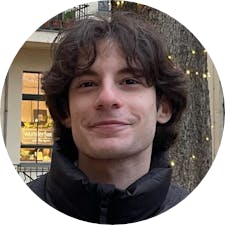
Alex Nadirashvili was the managing editor of multimedia and social media for The Brown Daily Herald's 133rd Editorial Board. As a former University News editor, he covered faculty, higher education and student life, though his proudest legacy is The Brown Daily Herald TikTok account.

